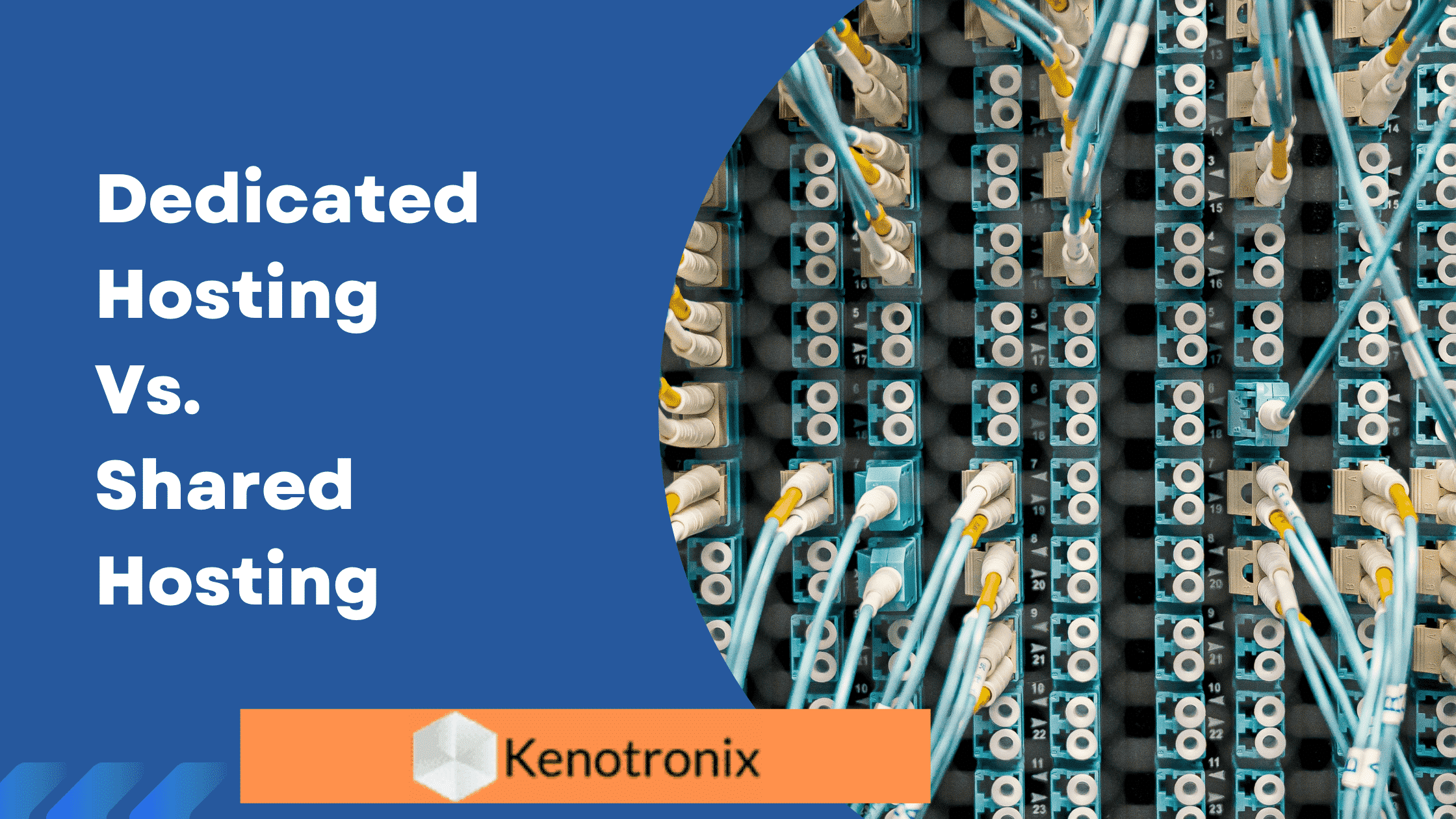
All doubts cleared! Shared hosting vs. Dedicated hosting
As the number of websites and online businesses is growing exponentially thus, their demand for hosting also depends on their requirements. Today, several types of hostings are available, but choosing the right one can be challenging, as every hosting comes with its unique pros and cons and is suitable for specific business needs.
There could be multiple reasons to decide which hosting will work for your business. Though some hostings allow you to customize their plans, among many options, the two hosting plans are shared and dedicated, which lies at the opposite end of the spectrum.
This article has highlighted shared and dedicated hosting and their significant difference. Before we start their comparison, let us understand what shared and dedicated hosting actually means?
What is Shared Hosting?
As the name suggests, “shared” hosting means a single physical server shared among several websites. All the resources such as CPU, disk space, RAM, and others are all available to all the websites that are being hosted. Shared hosting reduces a lot of infrastructures, maintaining software and hardware, etc.
What is dedicated hosting?
Dedicated hosting means you provide a dedicated space and resources for a single customer or website. It sounds like a good idea, but it is a costly option for a considerable budget. In contrast, it may outdo the shared hosting benefits if you have a growing business. Thus, scaling businesses are moving towards dedicated hosting.
Shared Hosting vs. Dedicated Hosting
Below are the factors that make both the hosting plans differ.
-With Shared Hosting, multiple websites use a single hosting platform and share the resources with other websites hosted on that platform. Also, some shared hosting ensures that they allocate fixed bandwidth for better resource usage. On the other hand, Dedicated Hosting provides a dedication to a single client with all the resources allocated to them.
-With Shared Hosting, you need to share the resources with other websites. The amount of disk space and bandwidth is limited, and the client may be charged for exceeding beyond their limit. While with Dedicated Hosting, all the resources such as CPU, RAM, disk space, and bandwidth are entirely dedicated to your website.
-Server reliability is measured by uptime score, which means how much time the server is available for the website. The shared resources of a Shared Hosting plan may fall short if there is a sudden traffic spike. But, in case of a Dedicated Server offers the best reliability as the resources are scaled up quickly during traffic surges.
-Websites hosted on a single server have the same IP address, making them more vulnerable to cyber threats. If one website is compromised, then other websites are also at the risk of being hacked.
-Shared Hosting is the least expensive option as the resources are shared among multiple websites, reducing overall cost. At the same time, Dedicated Hosting is costly as you purchase the entire server for yourself.
-If you have a team with no technical knowledge, it is better to go for shared web hosting. You should have a team that can handle servers networks and maintains infrastructure with dedicated hosting.
-Shared hosting ensures customization as the change will reflect on all websites available on the shared server. But with, Dedicated hosting allows for complete customization as you have the freedom to choose the operating system, running environment, and scalable bandwidth and memory.
There is no good or lousy hosting available; everything depends on your website requirement. As we have mentioned, some of the clear-cut differences help you understand which one is better for you. Kenotronix offers both the hosting options at the most affordable price and the best uptime in the market.

